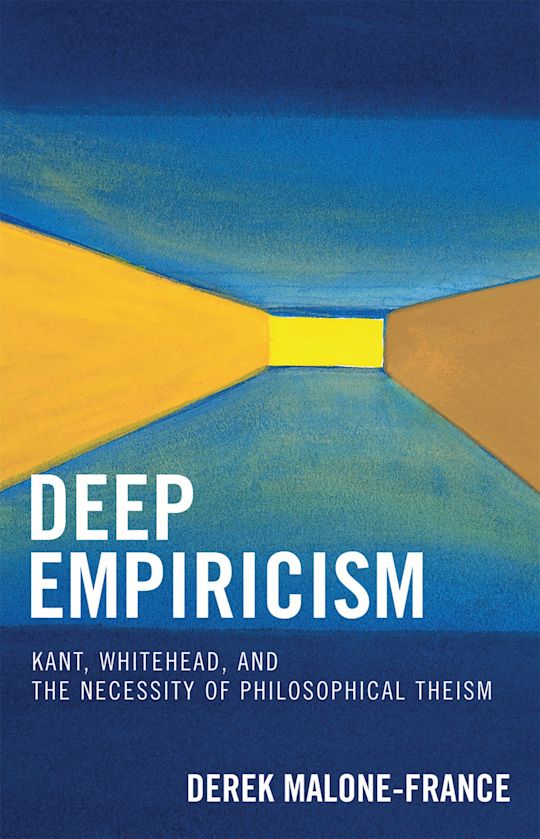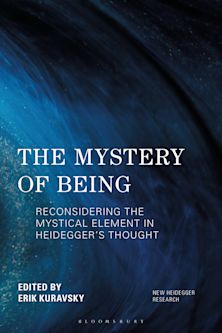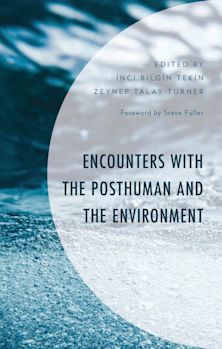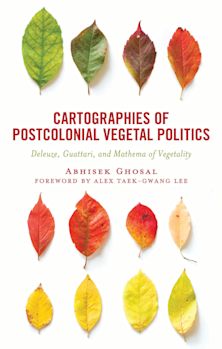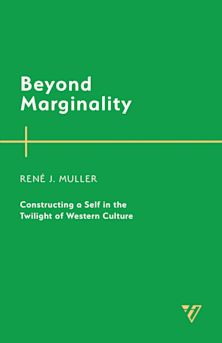- Home
- ACADEMIC
- Philosophy
- Philosophy - Other
- Deep Empiricism
Deep Empiricism
Kant, Whitehead, and the Necessity of Philosophical Theism
Deep Empiricism
Kant, Whitehead, and the Necessity of Philosophical Theism
This product is usually dispatched within 1 week
- Delivery and returns info
-
Free CA delivery on orders $40 or over
You must sign in to add this item to your wishlist. Please sign in or create an account
Description
Deep Empiricism: Kant, Whitehead and the Necessity of Philosophical Theism offers a critical and comparative engagement of two great philosophers who are rarely treated together: Immanuel Kant and Alfred North Whitehead. Each believes that careful attention to the nature and content of human experience reveals truths that transcend any individual or finite human community. However, the understandings of reality and human experience greatly differ between the two men and makes for fruitful comparative analysis. Derek Malone-France provides insightful readings of Kant and Whitehead as he bridges the gap between those who study Kant's transcendental idealism and scholars of Whitehead's organic realism. Deep Empiricism is an engaging and comprehensive text that will appeal to students of philosophy and those interested in the ambiguities of truth and reality.
Table of Contents
Chapter 2 Kant's Discovery: the Procedure of Transcendental Thought
Chapter 3 The Categories, Nature, and Intersubjectivity
Chapter 4 The Concept of the Noumenon and the "Recurrence" to Transcendental Realism
Part 5 Actuality, Possibility, and Divinity: The Philosophical Necessity of an Inclusive Existent
Chapter 6 Historicity, Relativity, and Deep Empirical Theism
Chapter 7 Beyond Universals and Particulars: Whitehead's Theory of the Eternal Objects
Chapter 8 Factuality, Intersubjectivity, and the Divine: Whitehead's Dipolar Panentheism
Product details
| Published | Nov 06 2006 |
|---|---|
| Format | Hardback |
| Edition | 1st |
| Extent | 220 |
| ISBN | 9780739116050 |
| Imprint | Lexington Books |
| Dimensions | 237 x 159 mm |
| Publisher | Bloomsbury Publishing |
About the contributors
Reviews
-
Anyone familiar with the history and fortunes of theology and philosophy is aware of Kant's modern turn to the subject in his transcendental idealism away from premodern realism and Whitehead's postmodern return to the object in his organic realistic metaphysics. Many theologians and philosophers have found nothing but discord between transcendental idealism and transcendental realism. Others have sought a concord between the two traditions, most notably Transcendental Thomism. For those who have thought it possible to creatively synthesize the best of Kant's epistemic insights and Whitehead's ontological and epistemic-axiological insights, Malone-France's critical and constructive work is a must read! Indeed, his attempt to integrate these two traditions can be seen as a kind of Transcendental Whiteheadianism. Without a doubt, his project has significant existential and metaphysical implications for our new century.
William L. Power, University of Georgia
-
Derek Malone-France has written an amazingly original, bold, and important book. While showing Kant's rejection of realism to be misguided, he also shows the validity of a reformed version of Kant's transcendental method--a method better called “deep empiricism,” since it deals with the necessary presuppositions of any viable theory of reality. Malone-France also argues persuasively that the metaphysical character of reality, as revealed by this method, implies an all-inclusive subject. In relation to Whitehead studies, this book overcomes the long neglect of Kant, recovering Whitehead's own sense of him as a great philosopher who made seminal contributions.
David Ray Griffin, author of Reenchantment without Supernaturalism: A Process Philosophy of Religion and Unsnarling the World-Knot: Consciousness,
-
Derek Malone-France makes a forceful case that the promise of Kant's transcendental philosophy is best fulfilled in a Whiteheadian inspired theistic metaphysics. Whitehead characterized his philosophy as "a recurrence to pre-Kantian modes of thought," but the author reminds us that Kant is one of the major figures with whom Whitehead was in dialogue. The discussion of the meaning of "noumenon" and how transcendental inquiry leads inexorably to a Whiteheadian type of metaphysics is a treasure of concise philosophical argument. Malone-France demonstrates in precise ways how the project of the first Critique failed and how a Whiteheadian metaphysic can succeed.
Donald Wayne Viney, Professor of Philosophy, Pittsburg State University (Kansas)
-
Malone-France is to be commended for this much-needed, well-argued comparative analysis of Kant and Whitehead. In my view, he presents a strong case for his thesis that Whitehead's Process and Reality more adequately and coherently fulfills the promise of Kant's Critique, namely, the justification of “synthetic” propositions and the notion of publically accessible “truth.” He does this with sensitivity to the best critical scholarship on Kant. Despite the technical nature of the subject matter, Malone-France writes in a superbly lucid way.
George W. Shields, Kentucky State University









